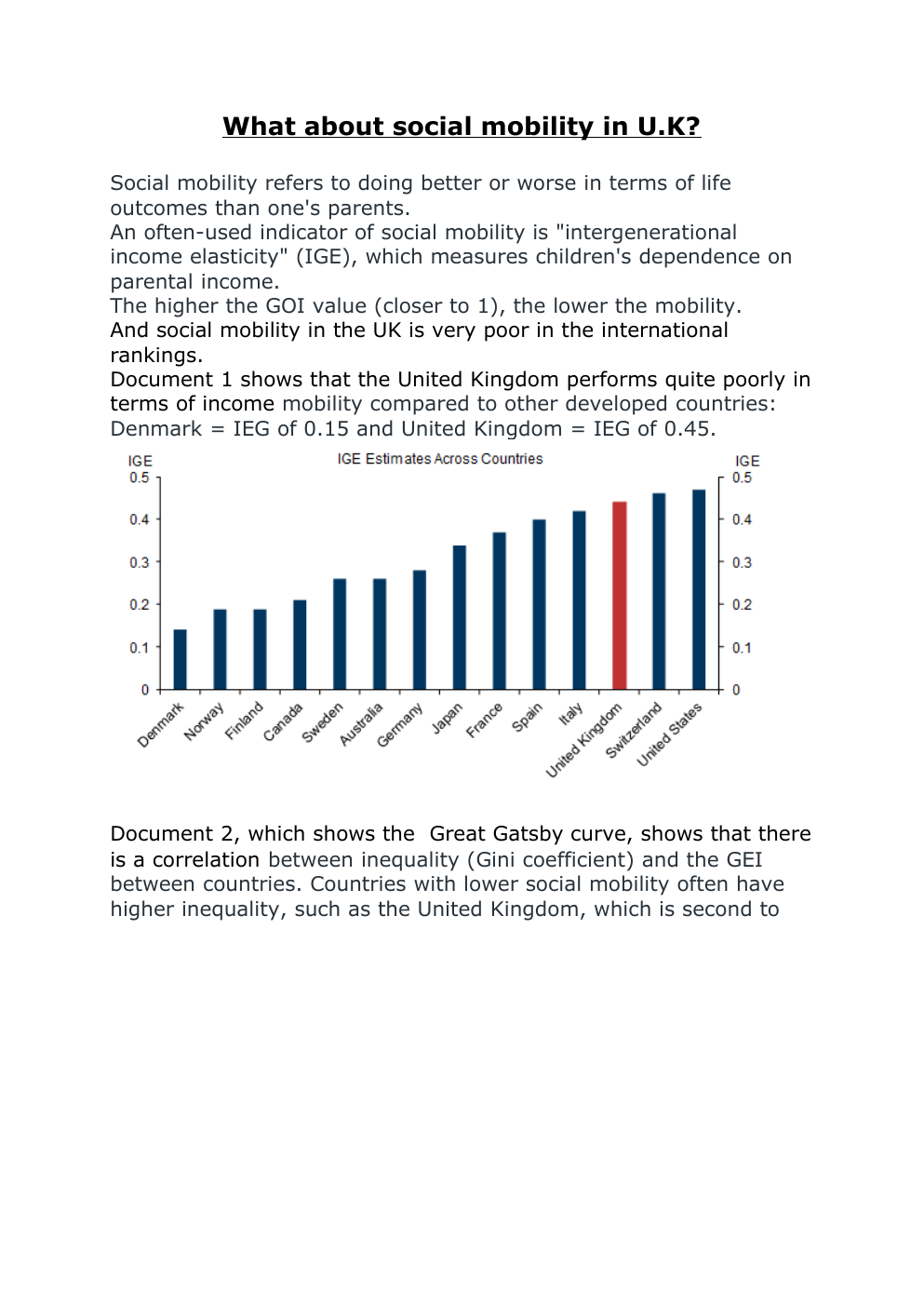mobilité sociale au R-U
Publié le 14/03/2024
Extrait du document
«
What about social mobility in U.K?
Social mobility refers to doing better or worse in terms of life
outcomes than one's parents.
An often-used indicator of social mobility is "intergenerational
income elasticity" (IGE), which measures children's dependence on
parental income.
The higher the GOI value (closer to 1), the lower the mobility.
And social mobility in the UK is very poor in the international
rankings.
Document 1 shows that the United Kingdom performs quite poorly in
terms of income mobility compared to other developed countries:
Denmark = IEG of 0.15 and United Kingdom = IEG of 0.45.
Document 2, which shows the Great Gatsby curve, shows that there
is a correlation between inequality (Gini coefficient) and the GEI
between countries.
Countries with lower social mobility often have
higher inequality, such as the United Kingdom, which is second to
last.
There are several possible reasons for this:
the combination of intergenerational transmission of
education and the significant wage premium for universitylevel jobs.
large regional differences in income in the UK
service sector job growth in the South
the more progressive tax system in countries with greater
social mobility (e.g.
Denmark, Finland and Norway).
The UK's Social Mobility Commission announced that last year, only
35% of UK adults believe that everyone has a fair chance to grow in
their job on merit.
In addition, 46% said that where you end up in
society is primarily determined by your background and who were
your parents.
Document 4 shows us that inequality was very high before Covid.
In
the UK, wealth is more unevenly distributed than income because
the Gini index is 35.
Indeed, recent data from the ONS shows that the
richest 10% of households own 43% of all wealth in the UK, while the
bottom half of the distribution owns less than 10%, which is
therefore
Uneven.
In addition, the Covid pandemic has exacerbated the problem of
social mobility in the UK.
Document 5 tells us that more than half
(56%) of the UK population believes that covid has increased social
inequality.
So covid has had a bigger impact on jobs that have a
lower salary.
Document 6 ( right) shows that 35% of people living in the north of
England believe that covid has had a greater impact on employment
in their area than in other parts of the country, while for the south
this percentage is only 17%.
And if we look at the impact on
education ( Table 6 , on the left), 21% of Northerners believe they
have experienced more negative consequences during the
pandemic, compared to only 8% in the South.
Document 7 shows that wage growth has been very strong in the
UK today and is growing at about 4% per annum.
Document 8 (left) shows that the strong wage growth of the
previous year was accompanied by an....
»
↓↓↓ APERÇU DU DOCUMENT ↓↓↓
Liens utiles
- mobilité sociale - sociologie.
- Dans quelle mesure, l'école est-elle source de mobilité sociale ?
- Société égyptienne et mobilité sociale
- L'enseignement et la mobilité sociale
- Thème du programme : les déterminants et les enjeux de la mobilité sociale


